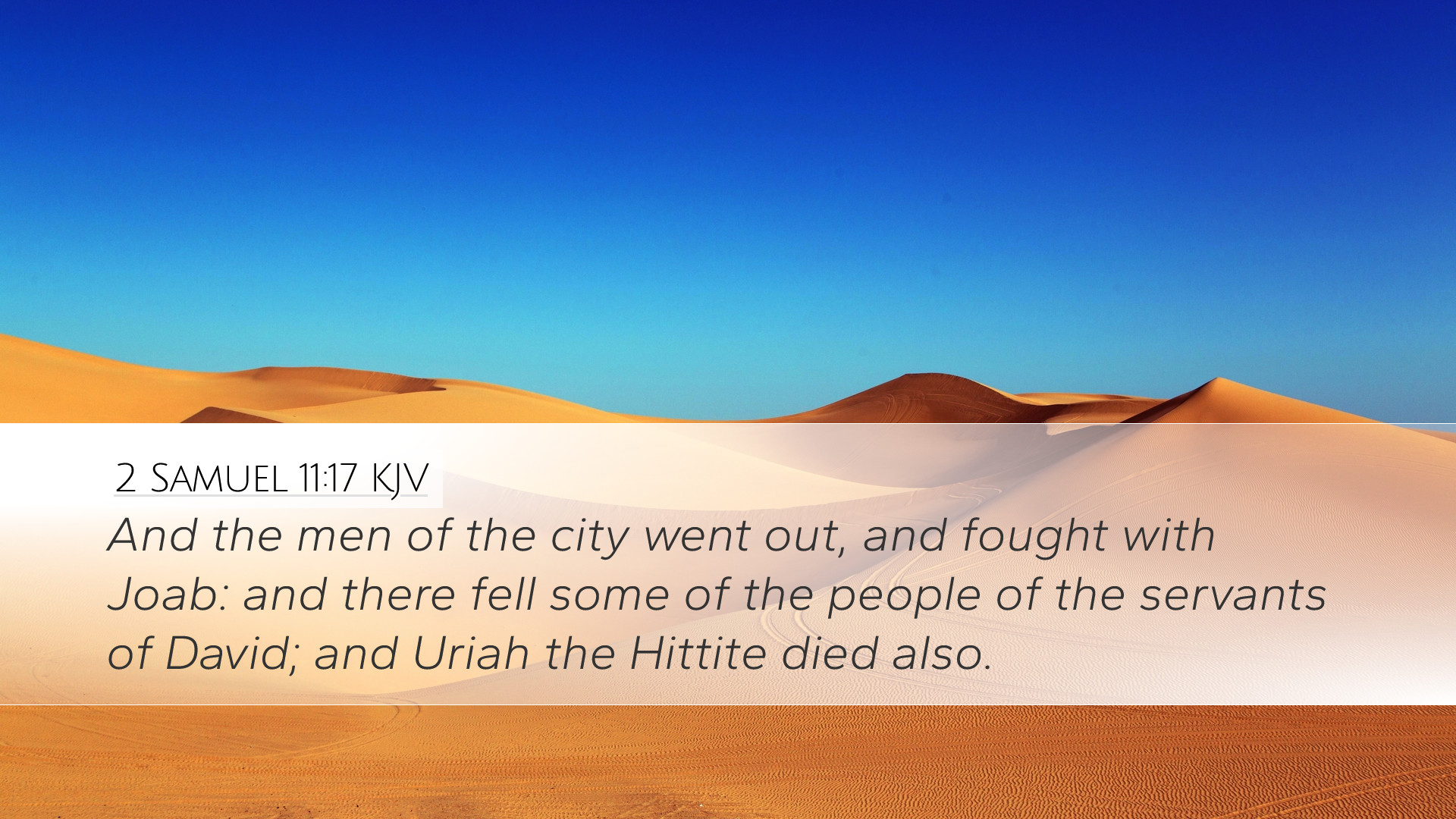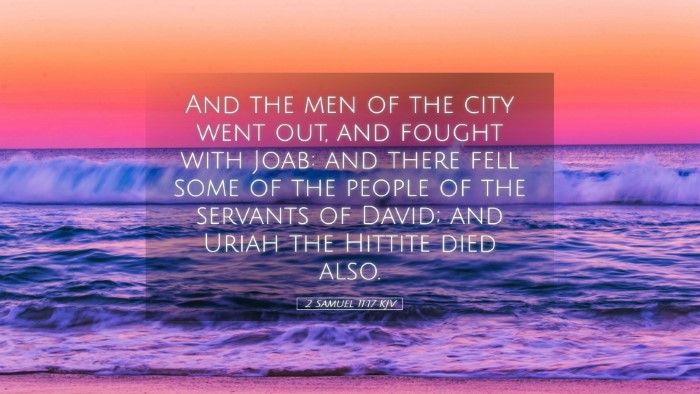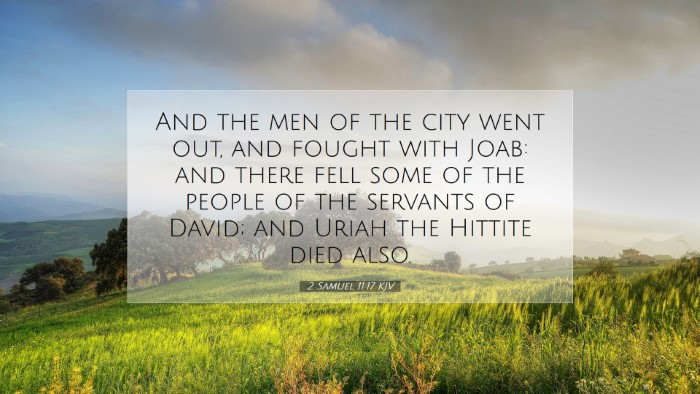Commentary on 2 Samuel 11:17
Verse: "And the men of the city went out, and fought with Joab: and there fell some of the people of the servants of David; and Uriah the Hittite died also."
Introduction
The events described in 2 Samuel 11 present a turning point in the narrative of David's kingship. This particular verse encapsulates the tragic consequences of David's sin with Bathsheba and the subsequent attempts to cover it up. This commentary draws insights from esteemed public domain sources to explore the theological, moral, and narrative implications of this passage.
The Historical Context
According to Matthew Henry, understanding the historical context of David’s reign is critical. David, who was once a man after God’s own heart, found himself entangled in a web of sin and deception. His adultery with Bathsheba led him to orchestrate the death of Uriah, her husband, in a misguided attempt to hide his wrongdoing.
- David’s Authority: David, as king, had great power but abused it by making a decision that would cost the lives of many, including Uriah.
- The Military Tactics: Joab, David’s commander, executed orders that ultimately led to Uriah's death, highlighting the manipulation present in David's leadership.
Theological Implications
Albert Barnes emphasizes the gravity of sin within David’s actions. The death of Uriah is portrayed not merely as a consequence of warfare but as a direct result of David’s moral failure. The text serves as a reminder of God's judgment and the reality that sin brings inevitable fallout.
- The Sovereignty of God: Even amid human sin, God’s providence governs the narrative, as seen in the unfolding events leading to Uriah's death.
- Moral Accountability: The passage illustrates the seriousness of accountability before God, as David’s sin directly affects the lives of others.
Character Studies
Adam Clarke’s commentary on this verse provides insight into the characters involved. Joab, though a warrior, acted upon David’s corrupt command, demonstrating the complexities of loyalty and morality in leadership.
- Joab: A competent military leader, Joab’s actions raise questions about his own moral compass and the influence of authority on his decisions.
- Uriah: As a faithful servant to David, Uriah's death symbolizes the profound tragedy of misused power and the collateral damage of sin.
Lessons for Today
This passage offers timeless lessons relevant for contemporary believers:
- The Cost of Sin: Sin may offer temporary pleasure but leads to lasting consequences. The text serves as a stark warning against moral compromise.
- Integrity in Leadership: Leaders are held to a higher standard, and the case of David emphasizes the need for integrity and accountability in positions of power.
- The Necessity of Repentance: David’s eventual path toward repentance, though delayed, underscores the importance of acknowledging one’s faults before God.
Conclusion
The account of 2 Samuel 11:17 is steeped in tragedy, representing the fallout of David’s sin and the lessons learned from the depths of moral failure. By studying this passage, pastors, students, theologians, and Bible scholars can engage deeply with the themes of sin, leadership, judgment, and the potential for redemption in the life of a believer.
As they navigate their own faith journeys, the lessons contained within this verse remind us of the importance of moral integrity, the consequences of our actions, and the ever-present need for divine grace and repentance.


